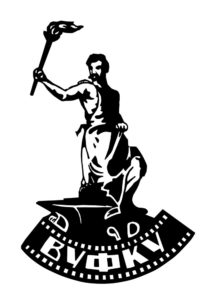
1. INTRODUCTION
Once a girl from a Siberian village came to a Soviet city, and, on the advice of her family members, she went to a cinema. However, this new viewer’s response was unexpected, “It is awful. I do not understand who allows showing such nasty things. I saw people torn to pieces. Their head was here, and their hands and legs were there.”
With this dramatic story the famous cinema expert Béla Balázs tried to illustrate his point on the culture of the audience’s perception, meaning that it is not enough to watch a film, one must see it, i.e. understand the ‘film language.’
Following a Ukrainian peasant, you go on a cinematic journey using an amazing route to see the VUFKU (All-Ukrainian Photo Cinema Administration) success story. Leaving the village, the traditional Ukrainian topos, you will be shocked finding yourselves in a modern technologically advanced city, which at the beginning of the twentieth century changed the human psyche forever, bringing up more than one generation of neurotics.
The cinema could appear only in the city, adding new architectural forms – a film studio and a cinema to the urban space. After the film show in the ghostly theatre of lost films, you will lose your way in the film studio, between the abandoned scenery of both saved and lost VUFKU films.
The VUFKU story is an unprecedented case of a successful state monopoly, an inclusive and interdisciplinary platform that united the most progressive Ukrainian intellectuals of the time, a high profile international institution known on both sides of the Atlantic.
On the other hand, the VUFKU story is a story of the lost: the unfilmed, forbidden and unsaved films; the repressed and executed filmmakers, and, eventually, the nearly forgotten Ukrainian culture, modern, international and local.
When researching the VUFKU experience, we tried not to reproduce the traditional victim narrative, but to demonstrate the success of the Ukrainian film industry of the 1920s, localising those progressive achievements in the modern media context.
That is why partially copying the inclusive VUFKU practice, we engaged contemporary artists, composers and authors in the work on the exhibition, and, reflecting on a few artefacts, available from the most interesting lost/unsaved films, they created modern works, installations, and texts.
Curator team: Stanislav Menzelevskyi, Oleksandr Teliuk, Anna Onufriienko